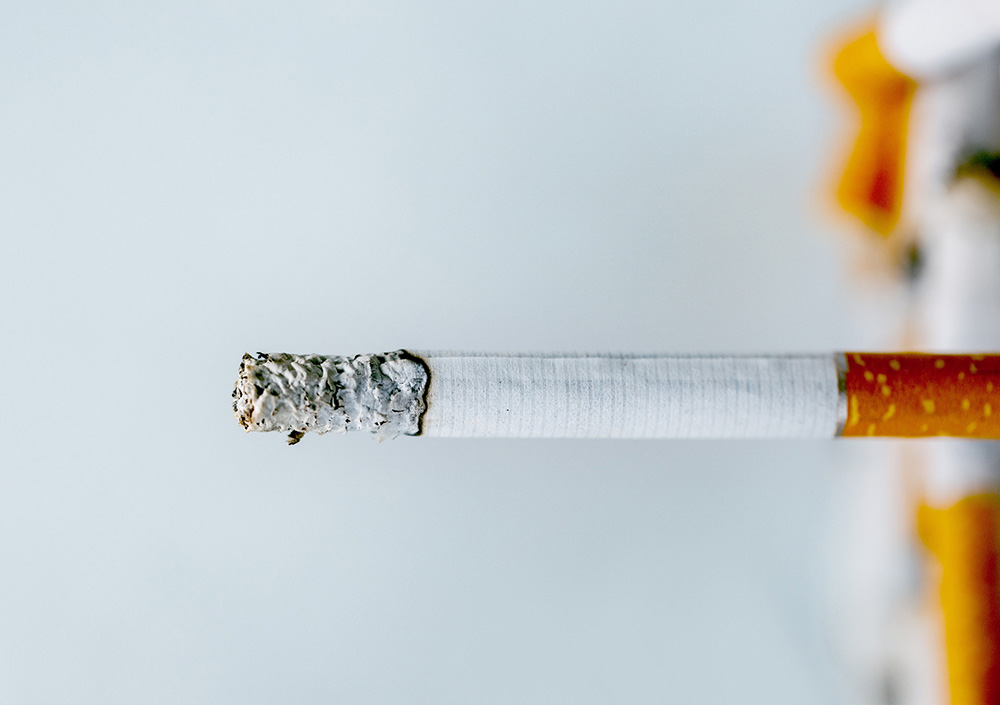Tobacco use and exposure to tobacco smoke are significant public health concerns, as they are known to be linked to a wide range of illnesses, including cancer, heart disease, and respiratory problems.
In addition to tar and carbon monoxide, tobacco products, and tobacco smoke have also been shown to contain a vast array of other chemicals, known as Harmful and Potentially Harmful Constituents (HPHCs). In this post, we will discuss what HPHCs are, why they are a concern, and what HPHC testing for tobacco products and tobacco smoke involves.
What Are HPHCs?
HPHCs are substances that are known or suspected to cause harm to human health or contribute to disease, even at low levels of exposure. These compounds are present in a variety of products and materials, such as synthetic fabrics, fragrances, and combustible cigarette smoke. HPHCs include carcinogens, toxins, irritants, and other harmful chemicals that can impact both smokers and non-smokers.
In March 2012, the United States Food and Drug Administration (FDA) published a preliminary list of 93 HPHCs related specifically to tobacco products. This list has been further divided into subsets of the most common HPHCs based on the product type and concentrations that have been typically seen.
Why Are HPHCs a Concern?
Long-term exposure to HPHCs can lead to a variety of illnesses, including respiratory problems, cardiovascular disease, and potentially even cancer. Exposure to an HPHC can occur both directly to the user and indirectly to others, as in the case of secondhand smoke.
What is HPHC Testing?
HPHC testing is a method of analyzing tobacco products and tobacco smoke to identify and quantify HPHCs. The FDA requires tobacco product manufacturers to submit detailed information about the composition of their products, including the type, quantity, and information related to harmful constituents. HPHC testing is conducted using advanced technological and scientific methods, such as gas chromatography-mass spectrometry (GC-MS) and liquid chromatography-tandem mass spectrometry (LC-MS/MS), to accurately identify and measure the HPHCs in the samples.
Why is HPHC Testing Important?
HPHC testing is a vital aspect of tobacco product regulation to protect public health and the environment. It helps manufacturers understand both the composition of their products and the potential health effects associated with their use.
The data generated from HPHC testing can be used to develop and enforce regulations, policies, and standards for tobacco products. HPHC testing can also help consumers make informed choices about the tobacco products they use and help healthcare professionals and researchers develop effective prevention, cessation, and reduced harm strategies.
What Are the Challenges Associated With HPHC Testing?
HPHC testing is a complex and challenging process that requires a comprehensive understanding of tobacco products and smoke chemistry. This is because different tobacco products have different compositions and may contain different HPHCs.
The analytical methods used in HPHC testing are highly sensitive and require specialized instruments and expertise. Sample preparation, analysis, and interpretation must be scientifically sound and reliable to generate accurate and reproducible results.
Regulatory agencies must ensure that HPHC testing is conducted appropriately and that the data generated is meaningful and useful for regulatory decision-making.
Reducing Harm from HPHCs in Tobacco
Currently, the FDA is actively researching how to effectively inform the public about the hazardous chemicals potentially present in tobacco products and smoke. This includes communicating the levels of HPHCs in various brands and sub-brands. In the meantime, the FDA is also incorporating messages about HPHCs into its ongoing public health campaigns.
To make an impact now, HPHC testing is a critical aspect of tobacco product regulation to identify HPHCs and should be used to develop and enforce science-based policies and strategies to reduce the health effects of tobacco products and tobacco smoke on the public and the environment. Reach out today to find out how McKinney Specialty Labs can help in this testing process.

